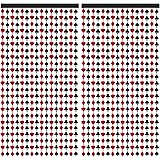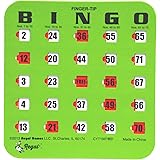How Casinos Rig Roulette: Unveiling the Hidden Mechanics
The global casino gaming market, estimated to reach over $115 billion by 2024, thrives on the allure of chance and the dream of big wins. Within this massive industry, games like roulette are often perceived as purely random, yet, as highlighted by Mikki Mase in the video above, there are revelations concerning how casinos can subtly influence outcomes. Understanding how casinos rig roulette involves delving into the sophisticated mechanisms that might be employed beneath the surface, challenging conventional perceptions of fairness in gambling establishments.
It is often speculated that the house always wins, and while a built-in mathematical edge certainly contributes, stories of deliberate manipulation further complicate this picture. Insights from experienced gamblers and industry insiders, such as Mikki Mase, suggest that various methods can be implemented to ensure specific results. Consequently, the integrity of seemingly random games like roulette is frequently questioned by those who feel that the odds are stacked against them in ways beyond the statistical house advantage.
Understanding the Mechanics of Rigging Roulette Wheels
One of the most compelling claims made in the accompanying video concerns the existence of motors embedded within roulette tables. It is suggested that sophisticated electromechanical systems can be used to control where the roulette ball ultimately lands, completely altering the game’s intrinsic randomness. This mechanical rigging represents a departure from the traditional notion of a purely gravity-driven, unpredictable spin.
Specifically, the concept involves a motor positioned directly beneath the roulette board, connected to mechanisms that can subtly influence the ball’s trajectory or the wheel’s rotation speed. Precision timing and advanced engineering are believed to be instrumental in these operations. For instance, the wheel’s speed might be marginally adjusted, or small, precisely timed magnetic impulses could guide the ball towards or away from certain pockets, thereby determining the outcome. Such manipulations allow for controlled outcomes that significantly benefit the casino, providing a deeper understanding of how casinos rig roulette.
Furthermore, this type of system could operate with extreme stealth, making it virtually undetectable to the casual observer. The motor’s operation would need to be silent and the physical alterations minimal to avoid suspicion from players or even regular casino staff. Consequently, the ball’s final resting place might appear entirely coincidental, maintaining the illusion of chance even as specific numbers are being favored or avoided. It is a nuanced form of roulette cheating that relies on hidden technology rather than overt physical interference.
Beyond Motors: Exploring Other Forms of Roulette Cheating
While the motor mechanism is a startling example of how casinos rig roulette, it is important to acknowledge that numerous other methods have historically been associated with attempts to influence roulette outcomes. These methods can range from the subtle manipulation of physical equipment to more advanced electronic interventions. Each technique aims to reduce the player’s true odds, thereby enhancing the casino’s profit margins significantly.
One commonly cited method involves the use of “biased wheels,” which are roulette wheels that are subtly imperfect due to manufacturing flaws, wear and tear, or deliberate alteration. These imperfections can cause the ball to land more frequently in certain sections or on particular numbers over time. Diligent players, often referred to as “wheel trackers,” have historically attempted to identify such biases, leveraging them for potential advantage before casinos could detect and rectify the anomalies.
In addition, dealer manipulation, though less about rigging the physical game and more about human intervention, is sometimes a concern. This involves skilled dealers who might intentionally spin the ball or wheel in a manner designed to favor certain outcomes, a technique often referred to as “past posting” or “controlled spins.” Although highly difficult to execute consistently and usually requiring years of practice, such alleged practices underscore the potential for various forms of roulette cheating within the casino environment. Ultimately, the quest for superior game integrity remains an ongoing challenge for regulatory bodies and players alike.
The Implications for Gambling Fairness and Game Integrity
The existence of mechanisms that could rig roulette wheels carries substantial implications for the perceived fairness and integrity of casino gaming. When players engage in roulette, there is an inherent trust that the game is operating on a principle of pure chance, with a defined, transparent house edge. Discovery of hidden motors or other sophisticated rigging techniques fundamentally erodes this trust, creating significant questions about ethical conduct in the gambling industry.
Regulatory bodies worldwide are tasked with ensuring fair play and upholding the integrity of casino games. These agencies implement stringent testing and oversight procedures for all gaming equipment, including roulette wheels. Inspections are often conducted to verify that games operate randomly and that no unauthorized devices or modifications are present. Despite these efforts, the ingenuity of those seeking to exploit or manipulate games often pushes the boundaries of detection.
Consequently, the discussion of how casinos rig roulette prompts a broader conversation about player protection and transparent operational practices. Players frequently express concerns about the fairness of games, particularly after extended losing streaks or unusual patterns of results. Therefore, ensuring public confidence in gaming establishments requires not only robust regulation but also an ongoing commitment from casinos to demonstrably fair and random game operations, safeguarding the recreational appeal of gambling. The possibility of casinos rigging roulette underscores the importance of continuous vigilance within the industry.











